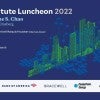
Kinder Institute Luncheon 2022
After two years of virtual events, the 2022 Kinder Institute Luncheon will once again be one of Houston’s most insightful gatherings of business and community leaders!

Kinder Institute Luncheon 2022
After two years of virtual events, the 2022 Kinder Institute Luncheon will once again be one of Houston’s most insightful gatherings of business and community leaders!

How Dallas-Fort Worth is poised to dominate America’s heartland
There’s an adage in Texas about a braggart being someone who’s “all hat and no cattle.” But you can’t say that about “Big D,” rapidly emerging as the de facto capital of the American Heartland.

Cities struggle to regain employment levels seen prior to the pandemic
The jobs recovery is coming along haltingly, and it has been particularly sluggish for the nation’s biggest cities. Even with historic levels of new job openings, it might take longer for cities to adapt to the new dynamics of the post-2020 (we won't call it post-pandemic) economy.

A road trip to find the next big Texan metropolis
Texas’ “Big 4” metro areas—Dallas, Houston, Austin and San Antonio—have all exploded with growth. Will a fifth emerge?
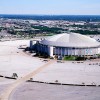
We need to talk about the Astrodome
Former Harris County Judge Ed Emmett discusses the past, present and once-future plan for the Astrodome, which has stood empty for almost 20 years. Recently, efforts to remake the Dome have been renewed.
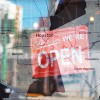
Black neighborhoods have led the Houston area’s surge in start-ups during the pandemic
Economists studying the dramatic growth of new business activity found that the proportion of Black residents in a ZIP code had the greatest impact on the rate of increase and that business formation coincided with the stimulus payments.

The return to work will determine the fate of downtowns. Is Houston ready for what’s next?
Central Houston President Bob Eury has been tracking COVID-19 case counts since the early days of the pandemic and has the spreadsheet to prove it. It was a ritual that he says helped him stay on top of the virus and how far off “normal” might be. But there may be one number he is tracking even more closely: how many of downtown’s estimated 168,000 workers are returning to the office.

Where are we going? Remote workers, RVs and the new calculus of where we live and why
After COVID-19 lockdowns and stay-at-home mandates, anywhere with fast broadband became a viable place to call home. But for Houston natives Alex Jimenez and Hayley McSwain, the choice was to move—and keep moving.

Surveying Houston’s progressive shift through 40 years of data
Houston, a quintessentially free-enterprise, anti-government city, is increasingly recognizing the critical role of government in strengthening the safety net, expanding opportunity and building resiliency, according to the Kinder Houston Area Surveys.
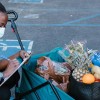
Analysis: COVID-19 infections, deaths didn't slow consumer spending recovery across US metros
COVID-19 infections and fatalities peaked at different times in cities across the U.S., and local efforts to slow the spread varied as well. Despite those differences, retail spending in Houston and other large metros followed very similar trajectories.

Triumph of the Triangle: How Texas can hold onto its urban economic powerhouse
In 1966, a lawyer named Herb Kelleher met one of his clients, a pilot and investment banker named Rollin King, for a drink in a San Antonio hotel bar. Both were entrepreneurs looking for new opportunities, and they discussed starting an airline to serve an in-state. The legend is that King drew a triangle on a cocktail napkin, showing how the new airline would connect the major markets in Texas.

The Texas Triangle: A rising megaregion unlike all others
The Texas Triangle—the urban megaregion consisting of the Dallas-Fort Worth, Houston, San Antonio, and Austin metropolitan areas—stands out as a distinctive model among America’s large urban megaregions.

Kinder Houston Area Survey: 2021 Results
For the past four decades, Rice University’s Kinder Houston Area Survey (KHAS) has been tracking the changing attitudes and beliefs of Harris County residents. The 2021 survey summarizes the most consequential changes and their implications for public policy initiatives going forward.

The Astrodome’s future is uncertain, but its past is certainly worth revisiting
As a kid, I spent a good chunk of time in the Astrodome, but I didn’t know the story behind how it was built and the role it played in the desegregation of Houston.
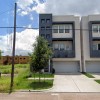
If they build it, will gentrification come?
A newly released Kinder Institute report examines how different types of housing development impact gentrification patterns in Harris County.
Rice University
Kraft Hall
6100 Main Street, Suite 305
Houston, TX 77005-1892